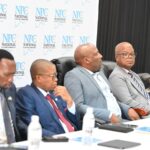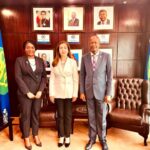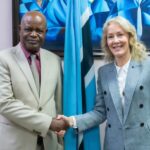Mr. Leonard Sesa has been appointed to the Southern African Development Community (SADC) Electoral Council, a significant role aimed at ensuring free, fair, and credible elections across member states. This appointment comes at a crucial time as the SADC region continues to strive for democratic governance and stability, yet faces numerous challenges that can undermine public trust in electoral processes.
Responsibilities of Leonard Sesa on the SADC Electoral Council
In his new position, Leonard Sesa will be tasked with several key responsibilities, including:
- Oversight of Electoral Processes: Sesa will monitor elections across SADC member states to ensure compliance with democratic principles and international standards. This includes overseeing voter registration, campaigning, and polling procedures.
- Capacity Building: He will work to enhance the capacity of electoral management bodies within member states. This involves providing training, resources, and best practices to improve the efficiency and effectiveness of electoral systems.
- Conflict Resolution: Sesa will play a vital role in addressing disputes that may arise during elections. His experience in conflict resolution will be essential for maintaining peace and stability during electoral cycles.
- Public Engagement: He will promote public awareness and education regarding electoral rights and responsibilities, encouraging citizen participation in the democratic process.
Challenges Facing Electoral Systems in the SADC Region
Despite significant progress in the SADC region, electoral processes still encounter several challenges that can affect public trust and stability:
- Political Interference: In some member states, electoral management bodies are subject to political influence, undermining their independence and impartiality.
- Voter Apathy: Low voter turnout remains a concern, often driven by public disillusionment with the political process and a lack of trust in electoral institutions.
- Election Violence: Instances of violence and intimidation during elections can deter citizens from participating and compromise the integrity of the electoral process.
- Limited Resources: Many electoral management bodies in the region operate with constrained budgets and inadequate resources, impacting their ability to conduct elections effectively.
Strategies for Improving Electoral Practices
In light of these challenges, Leonard Sesa has outlined several strategies he plans to implement to strengthen electoral practices and support democratic processes in the SADC region:
- Strengthening Institutional Frameworks: Sesa aims to advocate for the establishment of independent and well-resourced electoral commissions that can operate free from political interference. This will be crucial for restoring public confidence in electoral processes.
- Enhancing Voter Education Campaigns: By launching targeted voter education initiatives, Sesa hopes to engage citizens and encourage higher voter turnout. These campaigns will focus on the importance of participation and the mechanisms available for citizens to exercise their rights.
- Fostering Regional Cooperation: Sesa intends to promote collaboration among member states to share best practices and lessons learned from successful electoral processes. This cooperation can lead to improved electoral standards across the region.
- Leveraging Technology: Emphasizing the use of technology in electoral processes, Sesa will advocate for the implementation of electronic voting systems and digital voter registration to enhance efficiency and transparency.
Mr. Leonard Sesa’s appointment to the SADC Electoral Council is a promising development for the region’s democratic processes. By focusing on improving electoral practices and addressing existing challenges, Sesa aims to foster a political environment where free, fair, and credible elections are the norm. His leadership in this role will be instrumental in building public trust in electoral systems and contributing to the stability and democratic governance of SADC member states. As he embarks on this important journey, the region watches with hope for a future marked by strengthened democratic institutions and active citizen participation.










